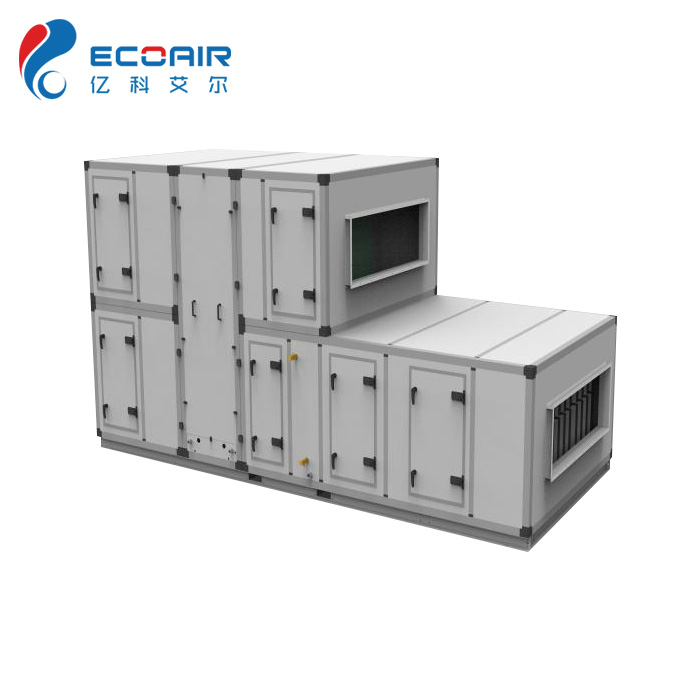What Is a Modular Air Handling Unit and Why Is It Important in HVAC Systems?
2025-07-02
A modular air handling unit (AHU)is a customizable and scalable component of HVAC (Heating, Ventilation, and Air Conditioning) systems designed to regulate and circulate air in buildings. Unlike traditional fixed AHUs, modular AHUs consist of pre-engineered, interchangeable sections (modules) that can be combined to meet specific air handling needs.
What Is a Modular Air Handling Unit?
Modular air handling units are made up of several distinct modules such as filters, fans, heating/cooling coils, humidifiers, and dampers, all housed in a common framework. Each module can be selected or replaced independently, allowing flexible configuration for different building sizes, air quality requirements, and energy efficiency goals.

Advantages of Modular Air Handling Units
Flexibility:Easily customized for diverse applications, from small offices to large industrial facilities.
Scalability:Modules can be added or removed to adjust capacity or upgrade performance.
Ease of Maintenance:Individual modules can be accessed or replaced without dismantling the entire unit.
Energy Efficiency:Advanced designs allow integration of energy recovery systems and variable speed drives.
Reduced Installation Time:Factory-assembled modules speed up on-site assembly and commissioning.
Improved Air Quality:Configurable filtration and humidification options enhance indoor air quality.
Typical Modules in a Modular AHU
Air Filters:Remove particulates and contaminants.
Fans:Provide air movement and pressure control.
Heating/Cooling Coils:Adjust air temperature as required.
Humidifiers:Regulate humidity levels.
Dampers:Control airflow and prevent backdrafts.
Energy Recovery Wheels:Recover heat or coolness from exhaust air to save energy.
Applications of Modular AHUs
Commercial buildings such as offices, malls, and hospitals.
Industrial facilities requiring precise environmental control.
Educational institutions and data centers.
Renovations and expansions where existing HVAC systems require upgrades.
Installation and Maintenance Tips
Properly plan module selection based on airflow, temperature, and humidity requirements.
Ensure regular filter replacements and coil cleaning.
Monitor fan operation and maintain bearings and belts.
Inspect and service humidifiers and dampers regularly.
Conclusion
Modular air handling units offer a versatile and efficient solution for modern HVAC challenges. Their adaptability, ease of maintenance, and potential for energy savings make them ideal for a wide range of commercial and industrial environments.


